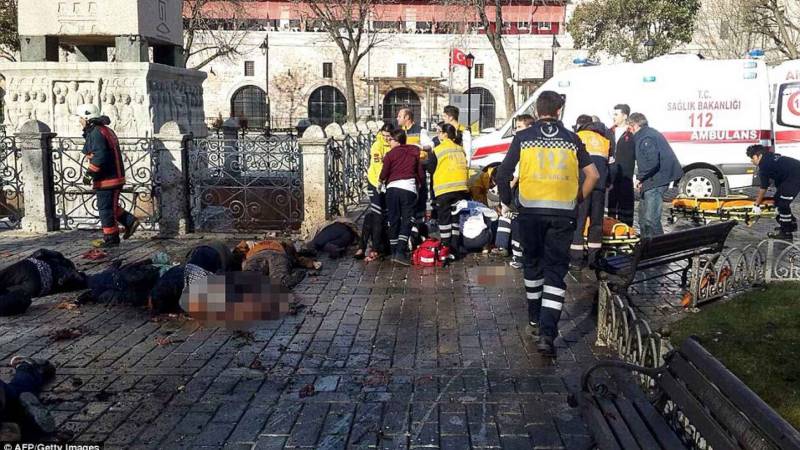A phenomenal piece of land that had served for centuries as the center for the greatest civilisations of mankind is going through an apparently endless political metamorphosis. For more than a millennium this sphere used to be the middle point for Eastern Roman Empire and Ottoman Turks. Surrounded between Black Sea and Bosporus, a place that started its journey from Constantinople to Istanbul, from the recent wave of terror attacks, seems across a never ending process of political transformation. Turkey is a vital Global political player. It’s an integral member of NATO, having a critical geo-strategic importance in terms of its geography. Turkey is geographically connected to both Europe and historically critical Middle East. Islam being the major religion but having a secular political and social approach makes it a crucial actor in the eyes of the Big Powers.”
Zubaida, Sami, “Turkish Islam and national identity”, 1996.
Among the series of terror attacks in Turkey, that mainly started last year following the crash of political settlement between the government and Kurdistan Workers’ Party (PKK) and the emergence of ISIL’s militants in the entire region, 20th August bombing at the outdoor Kurdish wedding event by ISIL in Gaziantep, Southeastern part of Turkey that lies close to Syria’s border, is one of the most deadliest blast which took place at Turkey in 2016. This current of terrorism was long predicted by the strategists who were closely watching the Middle Eastern turmoil.
The Kurdish uprising in Turkey is getting large scale momentum with the Kurdish fighters occupying a significant ground in Iraq and Syria. The three main Kurdish groups operating in Iraq and Syria are Peshmerga, People’s Protection Unit (YPG) and PKK. They are being supported with logistics and weapons by United States and International community as they consider them a potential force against ISIL and Assad regime. Although NATO and EU had declared PKK as a terrorist organization, still, US is supporting them on the Middle Eastern War Theater. Together with the support of Russia and Iran, their victories in Iraq and Syria are creating a serious national security hazard for the state of Turkey.
One person out of five is a Kurd in Turkey. The Kurds are striving for a separate homeland over the Kurd dominated areas of Iraq, Syria and Turkey. The international support to them in Turkey’s neighboring countries is providing a strong boost to their movement in Turkey.
The main conflict lies across the southeastern part of Turkey that is being dominated by the Kurds. Reportedly, in this long conflict, nearly 40,000 people have lost their lives. Yet, the Turkish combat jets are constantly targeting the Kurdish strongholds in northern Iraq, in order to disrupt their command and control center in the region.
However, this is not the only challenge to Turkey. Though, the democratic government of Turkey successfully managed to crush the military coup a month ago, ISIL’s declaration of war against Turkey is the mother of all challenges. Their militants have also been involved in numerous terrorist activities inside the country.
Turkey has been playing an important role in the Syrian conflict. They have been supporting many rebel groups who are fighting against the Assad regime. Majority of the foreign fighters combating under the banners of ISIL and Al Nusra Front have gone to Iraq and Syria through Turkey’s border. The government launched an operation against ISIL after the couple of lethal blasts shook the Turkey last year. At the moment Turkey is also a part of US anti-ISIL coalition. Moreover, Russia and Iran have been accusing them for supporting ISIL and purchasing oil from them, via the black market. Although the ice between Russia and Turkey has melted following American protection to Fatehulah Gullen, however, both countries have conflicting interests in the Syrian War arena.
In a complex political picture of Middle East where re-mapping of the countries is taking place while some of the states have practically lost their international boundaries, the challenge to the national security of Turkey is getting severe. According to UNHCR, 2,744,915 registered Syrian refugees are present in Turkey and due to the ineffectiveness of the “cessation of hostilities” in Syria, the influx of refugees is expected to increase within the next few months.
These multiple catastrophes have brought Turkey to a disastrous crossroads. Some strategists have even anticipated that the War in Syria and Iraq, in the near future, might incorporate well into the border areas of Turkey. The impotent border would definitely call for a large-scale military action that could result in a war-like situation for Turkey.
The contemporary political and security crisis in Turkey resembles the trouble situation of Pakistan. Like Pakistan, Turkey has a conflict in the neighbourhood along with a convoluted crunch at home. Therefore, Turkey must learn from the fallacious policies and clumsy actions adopted by Pakistan. They should rather opt the policy of political settlements to resolve the crisis instead of military actions. We have witnessed in Pakistan that military operations, within your own country, are counter-productive.
Additionally, in the multi-polar nature of world politics, where transnational actors have overturned the entire global order, Turkey needs to cautiously devise a strategy to combat Islamist militancy. Keeping in mind the tragic situation, starting from Middle East up till the Horn of Africa, Turkey should avoid the engagement in any such military operations that could generate a wave of extremism in its homeland.
Furthermore, Turkey must play an active role in bringing some sort of sustainable cease-fire in Syria as well as in Iraq. The massive displacement of people from Iraq and Syria is causing a great deal of trouble to the entire world as it is an established fact which I have repeatedly stated that “refugee camps have always served as reinforcement and recruitment centers for the insurgent groups”.






